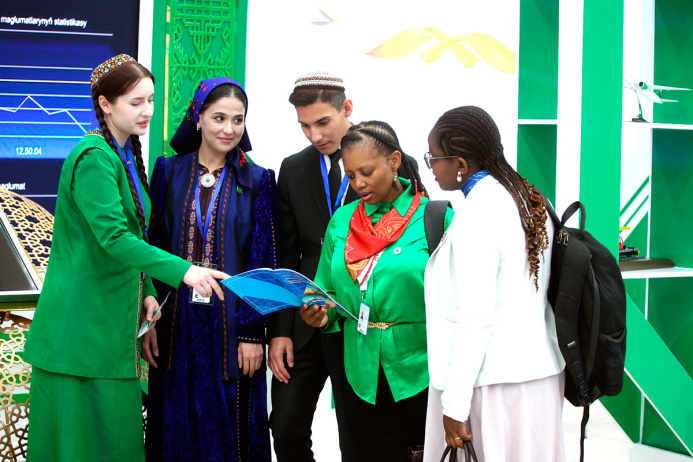The Third United Nations Conference on Landlocked Developing Countries (LLDC3) was held in the National Tourist Zone “Awaza” from August 5 to 8, 2025. The forum gathered representatives from 32 countries and became an important platform to discuss development strategies, integration into the global economy, and overcoming logistical constraints.
During the event, the Awaza Programme of Action for 2024–2034 and the Awaza Political Declaration were adopted. These documents focus on infrastructure development, trade facilitation, climate resilience, and financial resource mobilization.
According to Uzbekistan’s National Information Agency, discussions included transport links, trade simplification, economic reforms, climate resilience, and achieving the Sustainable Development Goals. Kazakhstan’s “Kazinform” agency reported that the forum’s key goal was to find solutions for structural and logistical challenges of LLDCs and unlock their transit potential.
China’s “Xinhua” agency noted that the adopted Programme of Action includes measures to deepen international cooperation and support sustainable development in Global South countries. Turkey’s “Anadolu” agency emphasized strengthening partnerships, innovative solutions, and attracting investments.
The conference’s timing in Turkmenistan coincided with the country’s 30th anniversary of neutrality, which “EU Reporter” highlighted as underlining Turkmenistan’s strategic position and role in developing transport corridors. Media outlets “Mir” and “AzVision.az” noted that the neutrality policy creates conditions for effective dialogue.
The forum discussed projects on diversifying the capabilities of the Turkmenbashi International Sea Port, developing North–South and East–West routes, and reducing transport costs.
UN Secretary-General António Guterres, in an interview with “News Central Asia,” stressed the need for economic diversification, investment in high-tech sectors, and digital infrastructure development. The Programme of Action prioritizes creating sustainable transport corridors and digitalizing logistics.
Special attention was given to climate issues. A decision was made to establish a Group for Landlocked Developing Countries within the UN Framework Convention on Climate Change. UNFPA Regional Director Florence Bauer highlighted the importance of investing in education, healthcare, and women’s empowerment.
The press also covered the trilateral meeting of Turkmenistan, Uzbekistan, and Azerbaijan, where prospects for economic and cultural cooperation were discussed.
Global media emphasize that implementing the Awaza Programme and Declaration will require international solidarity, technology exchange, and active private sector participation. The conference in Awaza marked a significant step toward strengthening cooperation and integration among landlocked developing countries.

